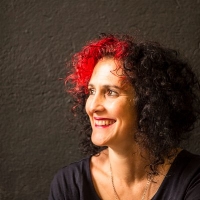Initiative no. 1
The Homeric Games
A sharing economy-based Olympics for innovation
Can hope change the world? Can Greece redefine itself for the 21st century? You bet.
Globalisation has one unexpected upside: Greece's problems are emblematic of the world's. And so, in this land where capitalism is dying, where social structures are crumbling, we have an opportunity to start from scratch – and turn crisis into opportunity. Seeing Greece as a sandbox for developing solutions to global challenges, we can create the building blocks for the society of the future.
The Homeric Games is an initiative that shifts the spirit of the times from competition, to collaboration. From capitalism, to the sharing economy. In these Games, teams compete alongside one another – not against – to a) bring out the best in each other, and b) solve pressing global problems, at the local, human scale. Solutions developed must invoke our capacity for togetherness and belonging, be crowdsourced or open sourced (or both), and be held in commons. In this way, we can share learnings for the benefit of all humanity. And turn Greece into a marketplace of ideas, just as John Danner explains in his Ted talk, above.
01. Convene
Assemble a community and crowd with the capacity and knowledge to change the way the world works.
02. PRototype
Design and deliver a simple and scalable proof of concept. Built in to all solutions must be the ability to adapt to different locations.
03. disseminate
Share all technology, strategy and trainings with a global audience of early adopters. And create a start-up ecosystem in Greece.
“To change something, build a new model that makes the existing one obsolete.”
Meet the Homeric Games ambassadors
Benita Matofska
Benita is a global leader in the Sharing Economy, an award-winning social innovator, recipient of the Nesta Innovation Fund, and TedX speaker. As a Sharing Economy consultant she has advised the private, public and voluntary sectors, and is dedicated to mainstreaming the sharing economy worldwide as the new socioeconomic paradigm. Where access to resources, not ownership, is the order of the day. Her work has been featured in media across the world, including the BBC, the Economist, CNN, and The Times, among others. She's also the pioneer behind Global Sharing Week, the global celebration of the Sharing Economy, which in 2017 saw over 354 events take place in 113 cities, across 34 countries on every continent.
Thom Feeney
The creator of the 'Greek Bailout Fund' crowdfunding campaign, Thom Feeney, knows a thing or two about what direct action by the people, for the people, can achieve. Especially when driven by a compelling cause. After dinner one night, he did some simple maths and worked out that if the entire population of Europe donated €3.19 (£2.26), it would be enough to rescue the Greek economy. In just 8 days his crowdfunder managed to raise €2 million, and he went onto news show after news show explaining why he bothered in the first place. Although he didn't rescue the Greek economy, he has remained true to his Hellenophile motivations and gone on to raise money for Greek charities that are tackling youth unemployment.


